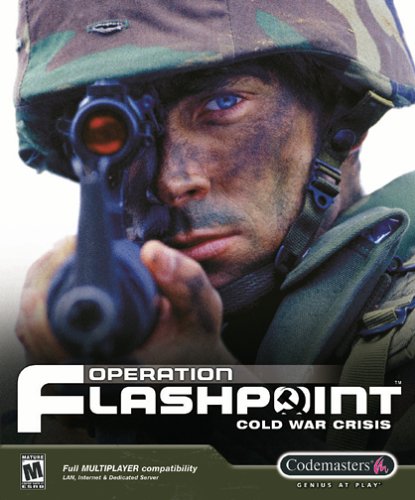I was at Codemasters at a time when online marketing grew from just about zero to being a major force. This presented new opportunities and new problems. Personally I saw it as a great thing. The potential to talk to potential customers, globally, interactively and in real time is a phenomenal marketing opportunity.

We were really lucky in that when Flashpoint came along and we had virtually no marketing spend we were able to put a lot of energy into the low cost areas of PR and online and still get a global number one. Also we must have been one of the first to look at the community side of MMORPGs and translate it over to our console titles. Having people working full time in online community liaison is essential these days.
The great thing about online marketing is that it cuts through the bullshit. You have many thousands of public voices out there saying how it really is. And you can’t shout louder than them. So the conventional marketing tactic of throwing money at telling customers what they want has decreased in relevance enormously. Increasingly bad games do not succeed. However a good marketeer will still make a huge difference in shaping perceptions and so getting the best sales performance. There is more in this article.
The most powerful marketing element now is the creation of a good, solid, monthly PR story. This is the much needed content that the interweb loves. And it is great ammunition for the community people. So here are a few elements of online marketing:
- The newsletter. This can contain the monthly story and loads of other updates, borrowing content from other online activities. Building your email mailing list is a key activity.
- The blog. Every game should have one. Members of the development team as well as community liaison and PR can make regular contributions. (Several per week) This should be a real engine to build a body of content on the web.
- The forum. Where everyone can chat about everything to do with the game. It is important to pitch a level of censorship appropriate to the game. The public really appreciate interacting with the development team, so having an insider answer a pressing question is worth a lot.
- Virals. Mini games, funny videos etc. These can work incredibly well if they catch on. You can use all your other online tools to make sure that they do.
- Webcams. I have always liked the idea of webcams in the development studio, so the public can see all the work going into creating their game. It can be a great talking point and the developers can have lots of fun with their public.
- Community activity across the popular forums and blogs. If there is a discussion about your game on someone elses site then you can join in and add value to the discussion.
- Competitions. These can create lots of interest, but should be integrated into the other online elements to get the best results.
- Working the non game interweb. If you are doing a motor-sport game then you need to be doing all the above to the online motor-sport community. Obviously the same applies to football, chess, whatever…..
All the above are low cost activities, all it takes is people and work. Using these is an ideal method for a developer creating their own IP. You can create a real buzz which adds enormously to the value of the game before going to a potential publisher. This is where big earnings lie.
Then there is online advertising which is yet another story.
Please add any comments you may have on this below.